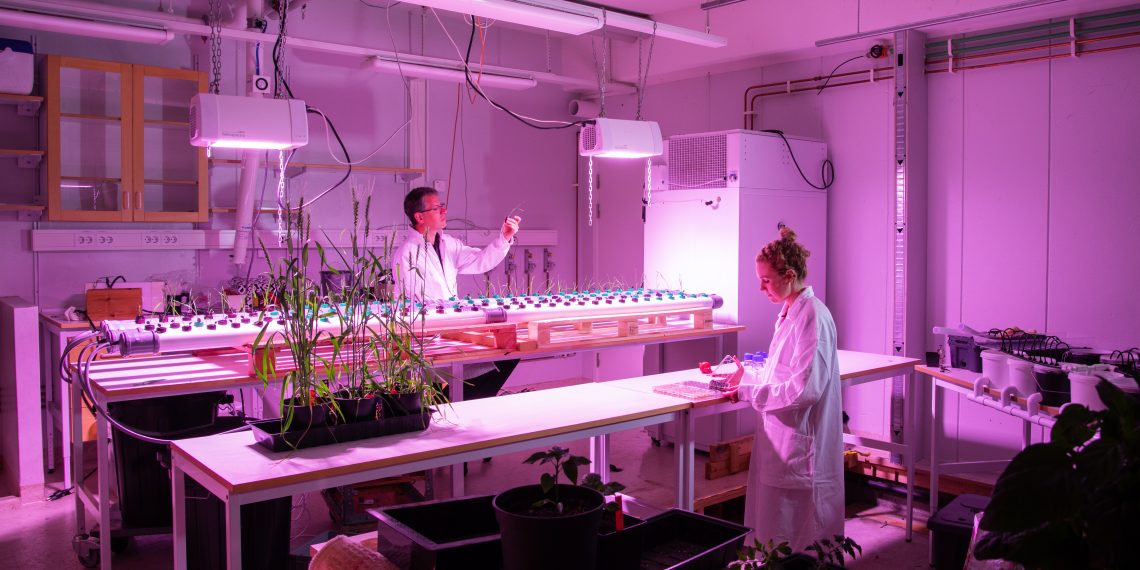The adverse impacts of climate change pose a challenge to the existing food shortage crisis. A significant and growing share of the world´s cropland is salt contaminated, due to factors such as rising sea levels, flooding, agricultural intensification and unsustainable practices. The most affected countries so far are in Asia, Middle east, South America, and Africa.
Wheat, a cornerstone of global nutrition, stands to benefit significantly from varieties engineered to yield more under these tough conditions, thereby strengthening global access to food. The wheat developed by OlsAro could be used to cultivate saline land that is usually left fallow due to dry seasons. This would allow farmers to add an extra crop season to their farming cycle. Initial testing in Bangladesh has shown wheat yields increasing by 52 percent.

“Their results are impressive”, says Marika King, Head of PINC. “Food security matters to all of us, and the OlsAro team can speed up solutions for wheat in several areas with their platform, and also for other crops in the future. The combination of the long-term scientific experience in molecular biology and the modern ways of handling data and AI is a key strength at OlsAro and we are excited to see what the team can create going forward.”
Food security through diversity and AI
OlsAro has created a platform to develop new wheat varieties three times faster than traditional methods. The technology builds on over ten years of research and a proprietary wheat collection with very high genetic diversity. This serves as the foundation for identification of traits tailored to withstand harsher climatic conditions, increase nitrogen efficiency, or even improve the nutritional content of the wheat.

“With our technology backed by 10 years of research, we’re now in a unique position to leverage the advancements in AI and plant biotechnology, secure intellectual property and to make a real impact on global food security. This funding will allow us to put a foot on the pedal and scale up our efforts, both technologically and commercially. We are proud of the great investor consortium believing in us, and their experience and networks will help make this happen”, says Elén Faxö, CEO of OlsAro.
For the salt tolerant wheat, OlsAro has a commercial contract in place for the Bangladesh market, as well as ongoing field trials in Pakistan, Kenya, Oman, and Nepal. The next step is to target Australia and India, as well as additional markets that suffer from having large areas of agricultural land degraded by salinity.
The investment round of 2.5 MEUR was led by Future Food Fund and PINC, with participation by AgFunder, Flora Ventures and Mudcake. Previously, OlsAro has received backing from for instance GU Ventures, Vasa Angels, and Öste Ventures.




















